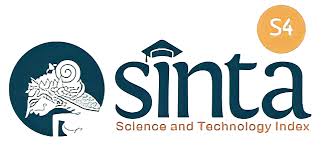Politeness Strategies in Indonesian English Textbooks
DOI:
https://doi.org/10.37680/linguafranca.v4i2.8371Keywords:
English Textbook, Indonesian Culture, Politeness StrategiesAbstract
This study investigates the use of politeness strategies in the Bahasa Inggris textbook for Indonesian twelfth-grade students. It aims to identify statements explicitly expressing politeness within the textbook’s conversation exercises. Considering the cultural significance of politeness in Indonesian society, particularly within educational settings, the study highlights the importance of integrating culturally appropriate communication practices into English language teaching (ELT) materials. Employing a descriptive qualitative method, six chapters (Chapters 1, 2, 3, 4, 9, and 14) were analyzed, resulting in 128 instances of politeness strategies. Among these, positive politeness emerged as the most dominant (50%), followed by negative politeness (25%), off-record strategies (11.7%), bald-on-record strategies (7.8%), and “Don’t do the FTA” (5.5%). The findings reveal that the conversational texts reflect Indonesian cultural norms by emphasizing respect, indirectness, and sensitivity to social hierarchy. This research evaluates ELT materials by promoting the integration of linguistically and culturally appropriate politeness strategies. It also encourages educators and textbook developers to prioritize politeness in instructional materials, enhancing students’ pragmatic competence in English communication.
Downloads
Published
How to Cite
Issue
Section
License
Copyright (c) 2025 Ima Frafika Sari

This work is licensed under a Creative Commons Attribution-NonCommercial 4.0 International License.
Lingua Franca: Jurnal Bahasa dan Sastraallow the author(s) to hold the copyright without restrictions and allow the author(s) to retain publishing rights without restrictions, also the owner of the commercial rights to the article is the author.
License:
- Attribution: You must provide an appropriate name, include a link to the license, and certify that changes have been made. You can do this in an appropriate manner, but do not imply that the licensor supports you or your use.
- Share Alike: If you compose or make derivatives of these materials, you must distribute your contributions under the same license as the original materials.
- No additional restrictions: You may not use legal provisions or technological means of control that legally restrict others from doing the things this license allows.
You are free to:
- Share, copy, and redistribute this material in any form or format.
- Adapt, modify, and create derivatives of this material for any purpose, including commercial purposes.
- The licensor cannot revoke the above terms as long as you comply with the terms of this license.
Creative Commons Attribution-ShareAlike 4.0 International License (CC BY-SA 4.0).






